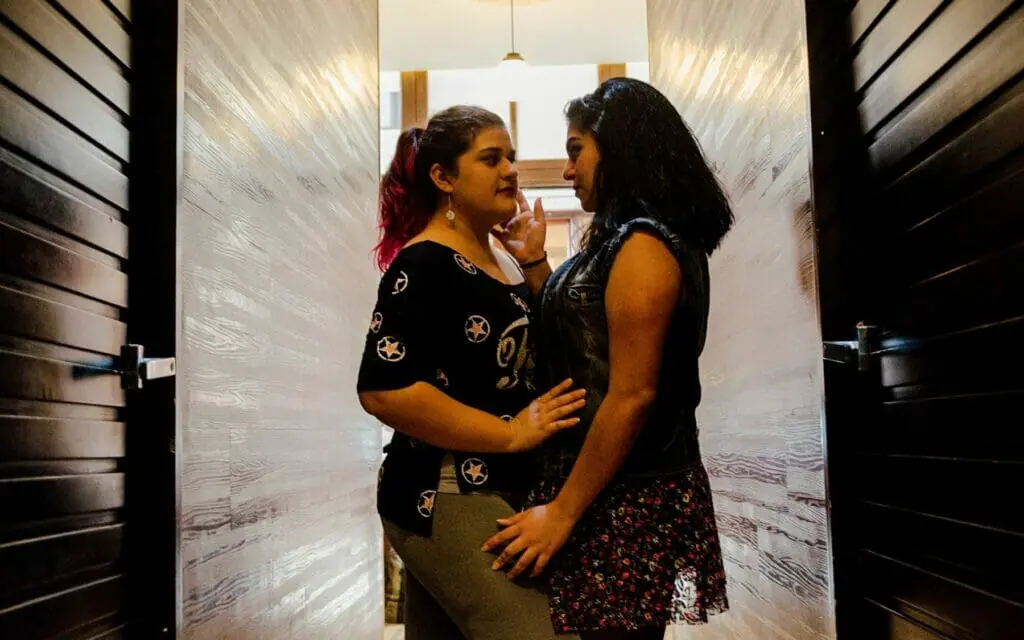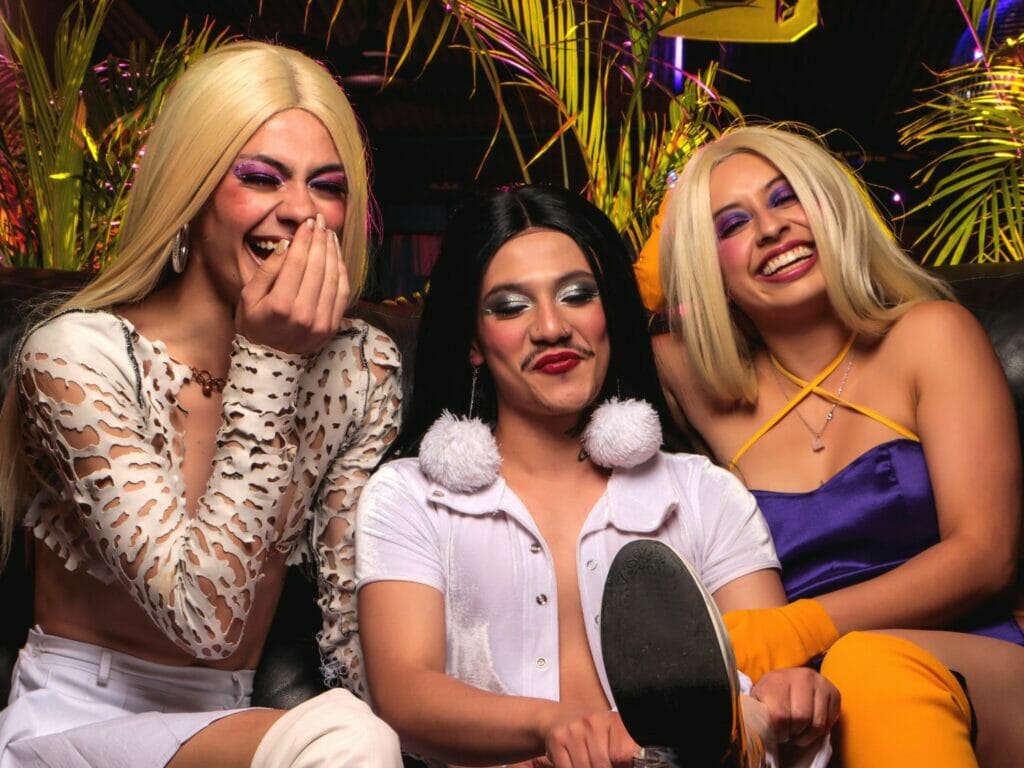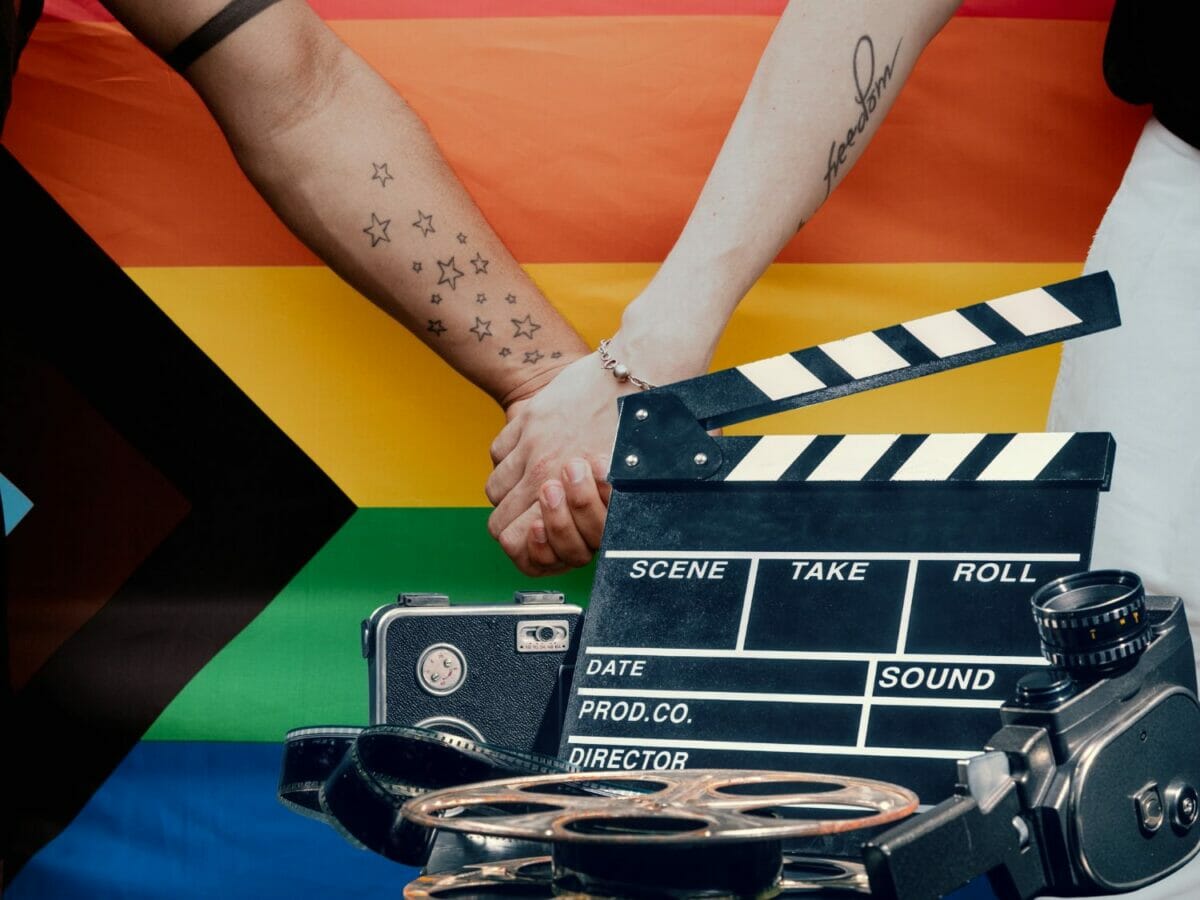Sometimes you can get a little tired of the same old ‘boy meets girl’ stories. Luckily, the next time you feel like watching something exciting, you could choose from one of the many amazing queer movies that have been made over the years.
Throughout the long history of cinema, we’ve come to know many things about the world around us. We’ve seen beautiful places. We’ve heard captivating sounds. But, most of all, we’ve learned about the ways of living of people the likes of which we may have never met. Whether it is because they live very far away, or because they think very differently, cinema has given us a chance to get closer to those we weren’t before.
Movies have a way of bringing people together. It may have to do with the fact that a good story can make us empathize with those who we couldn’t understand before. They can bring us closer to ways of living and struggles that we may not have known about, or that we may have known about but had not fully comprehended.

This is the power of queer movies. Just like movies portraying cultures different than our own, queer movies have the power to educate and empower: they both make heteronormative people empathetic towards queerness and make queer people feel represented and seen. That’s why they are so important, because of their power to bring people together.
While the surge of great queer films that have been produced in recent years definitely has to do with the fact that society has become much more understanding of queer life and queer struggles, there’s no denying that movies do play an important part in building this understanding.
The movies in this list are not only great films in themselves, but they are also some of the best examples of cinema where queerness was brought to the forefront. Like the queer community, they are diverse. Each one tells a different story in a different way. But, at the end of the day, they all tell the story of one struggle: the struggle of being who you are. And that is what makes them so powerful, so relatable, and so relevant.
So, get some popcorn, a glass of wine and a blanket, and snuggle in to watch! We can’t promise all happy endings, but we can promise a rich and varied range of gay sex movies.
Wondering where to watch? It depends on where you live in the world and which streaming services you have. We link to the streaming service we watch on in each case - be it Netflix, Amazon Prime, Apply TV+, or elsewhere.
You can get one month free of Amazon Pride (or a 6-month trial for students) of Amazon Prime and also get immediate access to FREE Two Day shipping, Amazon Video, and Music. While you won't be charged for your free trial, you'll be upgraded to a paid membership plan automatically at the end of the trial period - though if you have already binged all these, you could just cancel before the trial ends.
Apple TV+ also has a one-week trial, and Hulu has a one-month trial (which can be bundled with Disney!). Another option might be using a VPN to access Netflix titles locked to other regions. Netflix is now available in more than 190 countries worldwide and each country has a different library and availability. US Netflix is (understandably) one of the best.
While we wish everything could just be in one place - for now, it seems these are the best streaming platforms to watch on.

In this article we will cover...
- Pain and Glory [Dolor y gloria] (2019)
- The Power of the Dog (2021)
- Appropriate Behavior (2014)
- No Hard Feelings [Futur Drei] (2020)
- My Summer of Love (2004)
- Farewell, My Queen [Les Adieux à la reine] (2012)
- The Wedding Banquet (1993)
- Your Name Engraved Herein [刻在你心底的名字] (2020)
- Gods and Monsters (1998)
- Supernova (2020)
- Love is Strange (2014)
- We’re All Going to the World’s Fair (2021)
- Tomboy (2011)
Pain and Glory [Dolor y gloria] (2019)
Pain and Glory sees two icons of Spanish cinema finally working together again on a project. It’s the latest collaboration between the transgressive director Pedro Almodóvar and European sex symbol Antonio Banderas. Ever since their first collaboration in the 1987 Law of Desire, the two of them have joined forces again and again, and something magical has come out each time.
This dramatic film follows Bandera’s character, Salvador Mallo, a retired film director whose life has taken a turn for the worse: it seems like the only good in his life is the memory of his days as a young man, days about which he thinks very often.
On the occasion of the restoration of one of his best films, Salvador reunites with Alberto Crespo (Asier Etxeandia). He was one of the actors he used to work with, but they had a falling out due to Alberto’s addiction to heroin. This reunion will bring back memories from his past, as well as people: most notably Federico (Leonardo Sbaraglia), a former lover of his.
Pain and Glory gives us Salvador facing his past in order to make the best of his present, delivering a moving message about the chances for love and fulfillment in one’s later years.
The Power of the Dog (2021)
The Power of the Dog has been of the latest surprises in terms of queer movies: few people knew what to expect from this Western starring TV and movie darling Benedict Cumberbatch. It turned out that the writer and director, Jane Campion, had crafted a captivating drama focused on a bad-mannered and overtly macho gay cowboy.
The film is based on a 1967 novel by the same name, which served as an inspiration for the writing of Brokeback Mountain. It received plenty of praise for its performances and its direction, both of which truly elevates the story being told. The film actually made history as Campion won the Best Director award at the Oscars, which made her the first woman to be nominated twice for the award (she was also nominated for The Piano in 1993).
The film is centered around a young man named Peter (Kodi Smit-McPhee), whose mother has just married a wealthy rancher. While his new stepfather does treat him well, his brother doesn’t: Phil verbally abuses Peter and his mom, believing they are trying to steal their money. Soon Peter will find out that Phil isn’t who he believes. It turns out that Phil was in and still is in love with his cowboy mentor.
Appropriate Behavior (2014)
This charming comedy comes from the mind of one of the most interesting directors in recent years: the Persian American filmmaker Desiree Akhavan. While her other films have had plenty of recognition, Appropriate Behavior was her first feature and the one that put her in the spotlight. The film was created by Akhavan through and through, both written based on her own experiences as a closeted bisexual, and she starred in it.
The film tells the story of Shirin, a young woman living in New York City who suddenly finds herself in a very bad position: after her girlfriend breaks up with her, she has to find a new job and a new place to live. Stubborn as she is, she decides to try again with her ex-girlfriend, but finds out she’s dating someone. This doesn’t deter Shirin from befriending this person and finding out as much as she can about her ex.
Even though the premise of the film may make it sound a little bit like a thriller due to Shirin’s persistence and infatuation, this is actually a very self-aware comedy. The highlight of the film, in fact, isn’t Shirin’s and her ex’s relationship, but rather her struggles to come out to her family. It’s a sweet story where many viewers will surely see themselves represented.
No Hard Feelings [Futur Drei] (2020)
All the way from Germany comes this incredibly queer drama film. Directed and written by Faraz Shariat, No Hard Feelings tells the story of an Irani-German gay man who finds himself having to perform community service in a refugee detention center, where he will find the love of his life.
This coming of age is one of the biggest breakthroughs for queer cinema in recent years. Telling a story that is deeply relevant to today’s day and age: a story about love and intersectionality, meaning the struggles of being part of two different communities who are both oppressed.
The film follows Parvis (Benjamin Radjaipour) as he performs community service due to a minor crime he foolishly committed. While at the refugee detention center, he meets Amon (Eidin Jalali), an Iranian refugee, and his sister Banafshe (Banafshe Hourmazdi), who is being held there as well.
At first, the two of them don’t really like each other: the refugees don’t want Amon to interact with someone from the outside. But when they give each other a chance, the two of them fall in love. Yet the realities of the refugee crisis will threaten their chance to be together.
My Summer of Love (2004)
My Summer of Love is a captivating drama and one of the best queer movies of the 00s about two young women who come from very different backgrounds but inevitably fall in love in the summer of 2004. It was directed by Pawel Pawlikowski, who had previously surprised audiences with his 2000 debut drama Last Resort.
The film is based on a book by Helen Cross and, like the book, is set in the small British town of Saltburn-by-Sea. The town is famous for its gorgeous seaside sights, which make a perfect backdrop for the lovers’ relationship to flower.
At its core, the film is a quiet, intimate story about two women in love, played by the young stars Emily Blunt and Natalie Press. Tamsin (Blunt) hasn’t had much luck in relationships, but she does enjoy a fairly wealthy life as the daughter of a successful businessman. One day, while riding her horse, Tamsin meets Mona (Press), a young working-class orphan who has just gotten broken up with.
The two women strike up a friendship that will rapidly turn into something more. You should be warned: their romance does take a turn for the worse when Mona’s brother, Phil (Paddy Considine), learns about their relationship.
Farewell, My Queen [Les Adieux à la reine] (2012)
Farewell, My Queen, by Benoît Jacquot, is a lesbian romantic drama that tells a fictionalized account of the last days of the last French queen, Marie Antoinette. Written by Chantal Thomas, who was also the author of the book on which the movie is based, the film managed to catch the attention of audiences as it premiered on the European film festival circuit.
The film is told through the eyes of a young woman named Simone (Léa Seydoux), who worked as a servant in the Palace of Versailles just outside of Paris. As she goes through her daily life working for the Queen (Diane Kruger), Simone starts to see things she isn’t supposed to notice: the Queen’s relationship with her lover, Gabrielle de Polastron (Virginie Ledoyen), for one. Rather than being put off by what she sees, Simone herself begins to fall in love with the Queen.
However, this is the perfectly wrong time to do so: in just a couple of days, the palace will be stormed, and the revolutionaries will capture the Queen. Her love for the Queen will make her take a stand against the revolution and risk her life for the woman she loves.
The Wedding Banquet (1993)
One of Ang Lee’s best films is also one of the least talked about. While many have heard about his later worldwide critical success with Sense and Sensibility (1995), or his masterpiece Brokeback Mountain (2005), few people are familiar with his earlier work – though we personally consider it to be one of the best queer movies of all time.
During the nineties, the director made several films focused on characters from Taiwan, exploring his own experience as part of a Taiwanese family. With The Wedding Banquet, he managed to portray a captivating story about the experience of a bisexual Taiwanese man, something we don’t usually see in movies. The film deals with family pressure and expectation, a very important topic in Asian societies, with much depth, but also humor.
The film follows Wai-Tung Gao (Winston Chao), a Taiwanese immigrant living in New York City with his gay partner, Simon (Mitchell Lichtenstein). The couple has many plans for the future, like having a child and hopefully getting married.
His parents don’t know about his life with Simon and are constantly trying to get him a good Chinese girlfriend. This leads Wai-Tung to decide to marry Wei-Wei (May Chin), his neighbor, in order to placate his parents. But Wai-Tung’s whole life becomes threatened when he learns that his family plans to visit.
Your Name Engraved Herein [刻在你心底的名字] (2020)
Your Name Engraved Herein, or, more accurately, “The Name Engraved in Your Heart”, is one of the most exciting coming-of-age films in recent years. Why? Because it’s a film about the experience of a Taiwanese gay man, a group that doesn’t get much representation in the media, (in fact, the only other well-known example is that of Wai-Tung in the aforementioned movie by Ang Lee).
Even though its subject isn’t the most popular, the film directed by Patrick Kuang-Hui Liu found huge success, both internationally and in its home country: it became the most successful queer film to be made in Taiwan, which truly reflects how the country’s opinion on queerness is changing.
Set in the 1980s, the film tells the story of two teenagers who attend an exclusively-male Catholic high school. As the two of them find that they have many things in common, they become really close friends. What they enjoy the most is playing music together in the school’s band, and music will be key to their relationship.
The film will see them become even closer, but then strive apart when women become allowed to go to schools with men. The film, however, manages to capture their unfulfilled romance with much heart and passion.
Gods and Monsters (1998)
Gods and Monsters is a period drama that tells the story of James Whale, a film director known for his work on classic horror movies like Frankenstein, The Invisible Man, or The Bride of Frankenstein. Make no mistake; this isn’t a film like Ed Wood, which chronicles the life of a humorous man making bad movies:
Whale had a dramatic life that was marked by his experience fighting in World War I. He was also an openly gay man during that time. While the film was a box-office failure, the critics loved it, particularly due to the incredible performance of Ian McKellen as the famous director.
Set in the 1950s, the film shows us the last days of Whale’s life. His moviemaking days are behind him, and now he’s retired. As the story goes, in his last year’s Whale suffered several strokes, which made him unstable, constantly losing himself in the memories of his tragic past.
Amongst much suffering, he finds some happiness in his new friendship with his gardener, Clayton (Brendan Fraser). But when he finds out about Whale’s sexuality, his relationship with him becomes a bit more complicated. The film shows Clayton truly understanding his friend and becoming accepting of his way of life.
Supernova (2020)
Supernova is a romantic drama that sees two of the sexiest old men in movies together in a beautiful relationship that is bound to make you emotional. We’re talking about Colin Firth, who plays Sam, and Stanley Tucci, who plays Tusker. The two of them have been together for quite a while and enjoy their time practicing astronomy, meaning that they regularly go out to look into the night sky together.
The film follows them as they journey across England in order to catch some of the best celestial sights in the country. Yet not everything is happy: Tusker has just been diagnosed with dementia, and these moments they are spending together may be their last.
Supernova was directed by Harry Macqueen, a British actor whose only previous work at the helm of production was in 2015’s Hinterland, a quiet film that captivated the audiences at Raindance. While his first film didn’t receive much praise beyond the local festivals, Supernova is considered one of the best films in recent years.
It’s a moving film that deals with very heavy subjects: the pain of losing your own mind and of seeing your loved one have to go through that. But it is one of those movies that shows that, in these times, love is the best medicine, even if it can’t cure all.
Love is Strange (2014)
Love is Strange is a romantic drama film written and directed by Ira Sachs. While the film didn’t receive glowing critical praise, it was very well received by audiences, particularly in the LGBT community, this its placement on this list of best queer movies. The director, who is an openly gay man himself, is known for his moving family dramas that often touch on issues of gayness and queerness.
The most lauded aspect of the film is definitely the performances by John Lithgow and Alfred Molina, two seasoned and award-winning actors who managed to capture the intricacies of a married gay couple with great skill.
The film tells the story of Ben and George, two husbands who, after four decades together, decided to finally get married. However, this lovely occasion gets soured by George’s employers: when the director of the Catholic school he works at finds out about this marriage, they fire him on the spot.
This forces the couple to leave their apartment and crash into their friends’ homes while they find a new job. The situation becomes even more complicated when the couple realizes that they will have to live in different places, since no one can accommodate the two of them.
We’re All Going to the World’s Fair (2021)
Since the best horror movies out there often have a certain queerness to them, a list of the best queer movies wouldn’t be complete with some horror. We’re All Going to the World’s Fair paints a haunting depiction of the coming of age of a lonely girl who spends most of her time on the Internet.
Her favorite thing to do is watch the “World’s Fair” videos: a challenge that transforms the people who take it into something else. One night, she finally decides to take the challenge herself. Through her video diaries, we see what’s happening to her, which doesn’t seem very scary until an older man contacts her and tells her she’s in danger.
The film was directed by Jane Schoenbrun, who also created the screenplay for the film based on her own experiences as a lonely child with access to the Internet. One of the most interesting aspects of the film is the fact that Schoenbrun actually came out as transexual during the process of creating. In this light, the fear of the transformation that the people who take part in the challenge undergo appears to be related to the fear of accepting one’s own gender.
Tomboy (2011)
If there’s a director out there who knows how to capture the essence of queerness in its many facets, it is Céline Sciamma. You may know her work from the racial coming-of-age drama Girlhood, but most likely you have seen her 2019 lesbian period drama Portrait of a Lady on Fire. Both of those films do a great job of showing the complexities of sexual identity and gender as we know it today. But the film where she truly managed to capture this elusive subject was Tomboy.
Tomboy tells the story of a child of ten years (Zoé Héran) who is gender non-conforming, meaning that even at that age, they don’t see themselves represented in their assigned gender at birth. When a girl from the neighborhood confuses them with a boy, the protagonist goes along and adopts the name of Mickaël.
Presenting as a boy, Mickaël feels the best they’ve ever felt in their life. The film shows them going to greater lengths to keep their assigned sex from their friends, particularly from Lisa, the girl from the neighborhood who they have fallen in love with.



